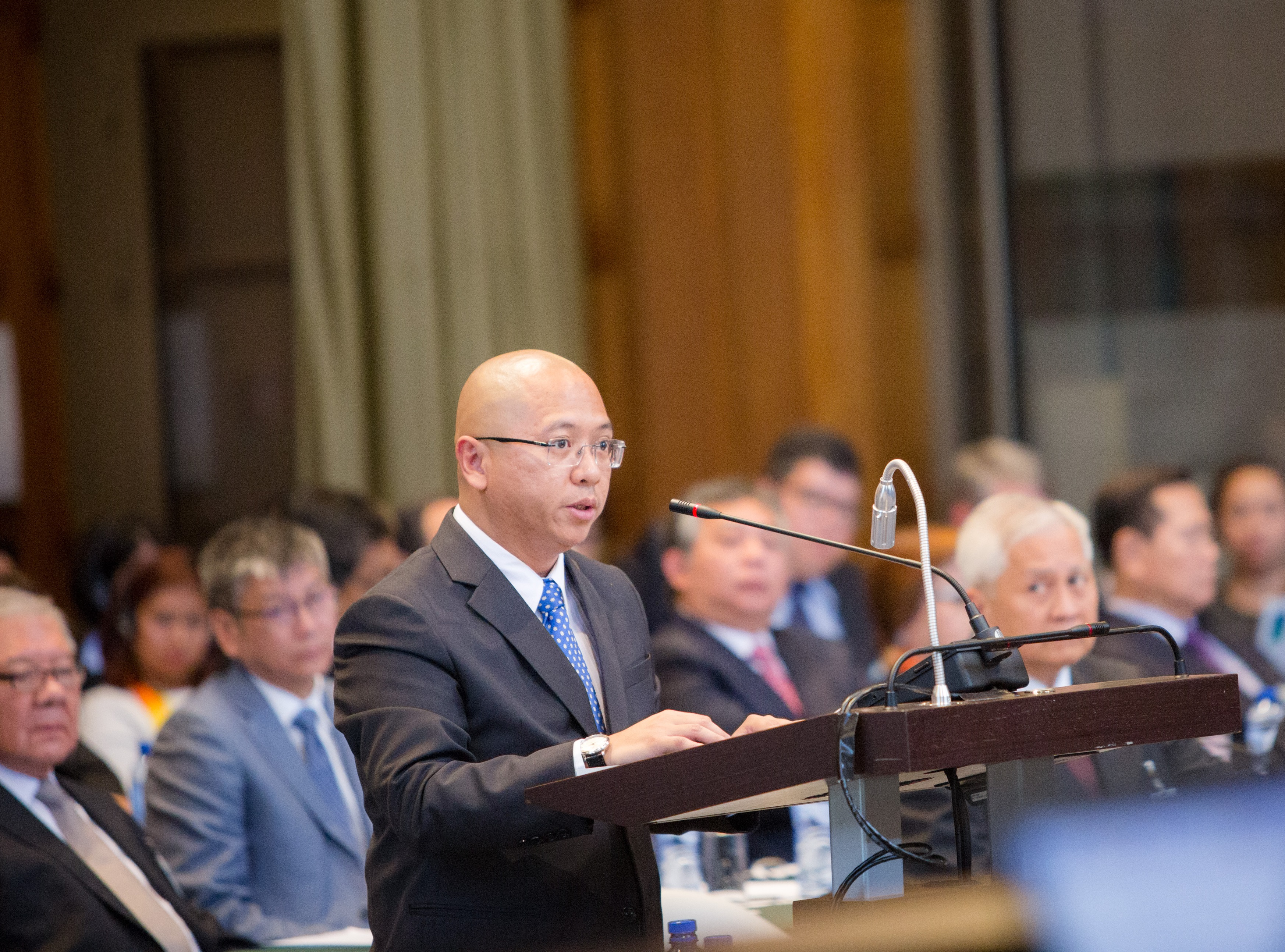
MANILA, Philippines – Senator Grace Poe faces two battles before the Supreme Court: the disqualification case filed by Rizalito David concerning the 2013 polls after it was recently dismissed by the Senate Electoral Tribunal (SET), and the motion that Poe elevated after the Commission on Elections (Comelec) ruled to cance her certificate of candidacy for the 2016 presidential elections.
In the second case, the Office of the Solicitor General (OSG) has refused to represent the Comelec. (READ: SolGen not backing Comelec: it happened before)
This is because the government's chief lawyer is already representing the SET in the first case, and the position taken by the Senate Electoral Tribunal – that Poe is a natural-born citizen and qualified for national office – is in contrast with the Comelec's ruling. (FULL TEXT: SolGen defends SET ruling in favor of Grace Poe)
The OSG will therefore represent the SET before the SC, which will hear oral arguments on the case on January 19.
What exactly is the OSG, and why is it getting involved in these cases?
Mandate
The OSG is an independent and autonomous body attached to the Department of Justice.
It is headed by the Solicitor General, which basically functions as the nation’s attorney. In a similar way to how an attorney represents a person in court and gives advice on legal matters, the Solicitor General represents "the People of the Philippines, the Philippine Government, its Agencies and Instrumentalities, Officials and Agents" before SC and the Court of Appeals.
This is why the Solicitor General is sometimes referred to as the top or chief government lawyer.
OSG currently holds office in Legaspi VIllage, Makati City.

It represents the government’s various bodies and it is also involved in all proceedings involving Philippine citizenship. This is why the OSG is allowed to represent the SET before the Supreme Court in the case questioning Poe’s status as a natural-born Filipino citizen.
The mandate of the Office of the Solicitor General can be found in Book 4, Title III, Chapter 12 of the 1987 Administrative Code. In summary, it has the following official powers and functions:
- Represent the government in all criminal proceedings in the Supreme Court and Court of Appeals.
- Represent the government and its officers in all civil actions and special proceedings. In cases outside the Philippines, the OSG may employ counsel for assistance.
- Appear in any court in any action involving the validity of any treaty, law, executive order, or proclamation, rule or regulation when, in the OSG’s judgment, intervention is necessary or when requested by the Court.
- Investigate and initiate court action against any person, corporation, or firm for the enforcement of a contract, bond, guarantee, mortgage, pledge, or other collateral with the government.
- Appear in all proceedings involving the acquisition or loss of Philippine citizenship.
- Represent the government in all land registration and related proceedings.
- Institute actions for the return of lands and improvements thereon of public domain to the government.
- Upon request of the President or other proper office of the national government, prepare documents for use in official transactions with conformity to law and public interest in mind.
- Deputize any provincial or city fiscals to assist in the OSG’s duties within the fiscal’s jurisdiction.
- Deputize government legal officers to assist the OSG.
- Call any government agency for service, assistance, and cooperation.
- Receive funds and allowances provided by government agencies for legal services.
- Upon the instruction of the President, represent the Philippines in international litigations, negotiations, or conferences where the legal position of the Republic must be defended or present.
- Represent the Republic and/or the people in any court, tribunal, body, or commission in any matter, action, or proceedings that in the OSG’s opinion, affects the welfare of the people.
- Perform other functions as may be provided by law.
The Solicitor General is appointed by the President. The present Solicitor General – the 47th in history – is Florin Hilbay, who was appointed by President Aquino in June 2015.
His term will end on June 30, 2016, together with the President.
History
The position was created in 1901 to assist the Attorney General, who headed the Bureau of Justice. Lebbeus Wilfey served as the country’s first Solicitor General.
The Attorney General position was abolished in 1932 and its functions were assigned to the Secretary of Justice. The Solicitor General subsequently became head of the Bureau of Justice.
After some of its functions were transferred to the Department of Justice, the Bureau became the Office of the Solicitor General in 1947. A more detailed, concise history of the office can be found here.
Cases

Hilbay is also part of the official delegation of the Philippines to the Permanent Court of Arbitration in the Hague, Netherlands, in the case involving maritime disputes over the West Philippine Sea with China.
Also among the delegation is former Solicitor General and now Supreme Court Associate Justice Francis Jardeleza, who had been speculated to be sympathetic to the Chinese position (READ: The inside story: Jardeleza accused of disloyalty to PH).

The OSG is also involved in the case against the Torre de Manila condominium, which became the subject of controversy in 2012 as it ruined the view of the Rizal monument. (TIMELINE: The Torre de Manila Case)
In this case, the OSG represents government respondents, the National Museum and the National Commission for Culture and the Arts.
In September 2015, the Solicitor General filed a memorandum to the Supreme Court, asking it to order the condominium’s developer, DMCI Homes, to demolish the building at its own expense. This came after the Solicitor General declared Torre de Manila illegal, a reversal of its original position in the case.
OSG also previously served as counsel to National Historical Commission of the Philippines in the case but later dropped them as a client.
A list of other cases that involved OSG can be found here. – Rappler.com